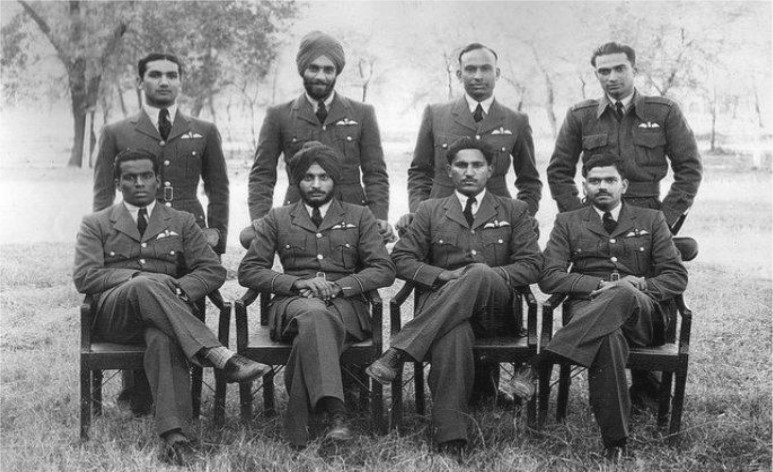A Black British Hero: Walter Tull 1888 to 1918
Early Life and Background
Walter Tull was born in Folkestone Kent in 1888 bein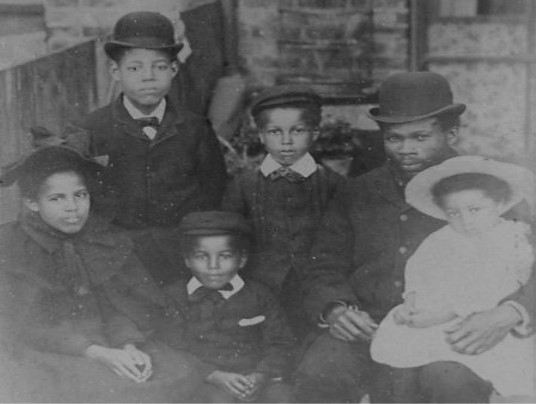 g the grandson of a slave with his father having arrived in the country from Barbados in 1876, although his mother died when he was just 7 years old and Tull & his brother Edward were sent to a Children’s Orphanage in Bethnal Green.
g the grandson of a slave with his father having arrived in the country from Barbados in 1876, although his mother died when he was just 7 years old and Tull & his brother Edward were sent to a Children’s Orphanage in Bethnal Green.
The reason why this decision was taken was because it was believed it would prevent the family from becoming destitute as Tull’s stepmother was struggling to cope with a large family as he had four 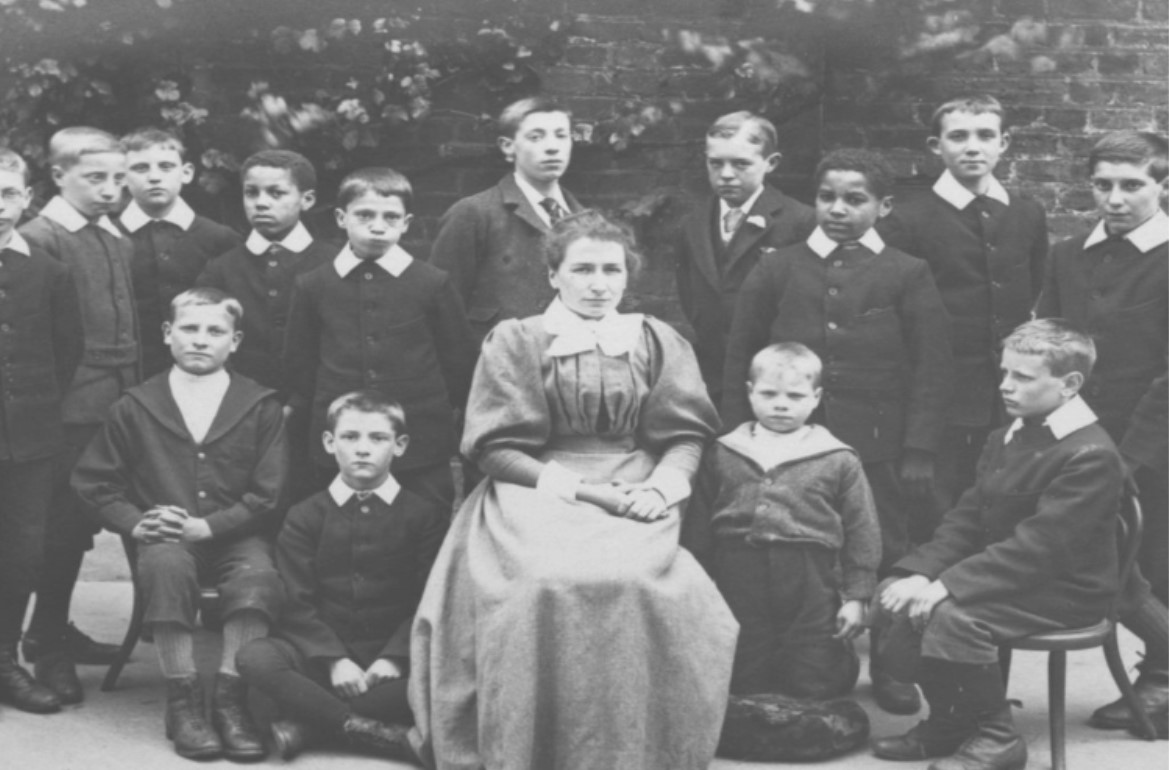 other siblings & the two older boys were seen as liabilities that the family could not afford.
other siblings & the two older boys were seen as liabilities that the family could not afford.
At the time Tull and his brother were sent to the orphanage there was always the option that he could return home although in the event the two boys stayed in the institution which was a relatively safe environment until their teenage years and were starting to think of life beyond the home.
Tull completed his education whilst in the orphanage before getting a job at a local printers which he was hoping would provide an opportunity for him to have some kind of career as a reporter on a newspaper & in his spare time he played football on a regular basis as this was a real passion for him.
Career as a Professional Footballer
Walter Tull showed himself to be a talen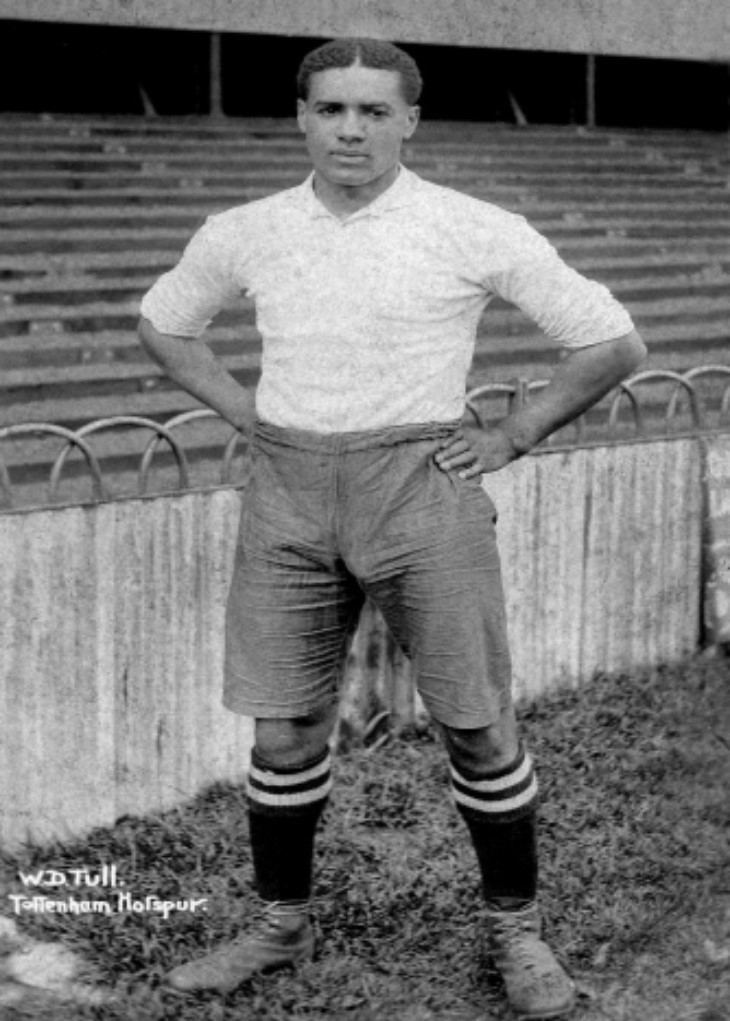 ted footballer and when he was 20 in 1908 he had a trial for local amateur team Clapton in the East End of London and was picked to play for them and after just one season he had made such an impression that he was spotted by talent scouts who were looking for new players and signed up by Tottenham Hotspur from the First Division (top flight of football in Britain at this time) For this he received a signing on fee of £10 and a wage of £4 a week.
ted footballer and when he was 20 in 1908 he had a trial for local amateur team Clapton in the East End of London and was picked to play for them and after just one season he had made such an impression that he was spotted by talent scouts who were looking for new players and signed up by Tottenham Hotspur from the First Division (top flight of football in Britain at this time) For this he received a signing on fee of £10 and a wage of £4 a week.
At this time Tull was the only second black man to play professional football in Britain, and he soon settled in at Tottenham making a significant impression on the club who had just been promoted to the First Division, although he often had to deal with racial abuse from opposition fans at away fixtures.
After just seven games for Tottenham however Tull was dropped and during the following season he joined Northampton Town and played just three games but after this he did become a regular player for the team and began to generate interest in other clubs notably Glasgow Rangers who wanted to sign him.
World War I and Career in the Armed Forces
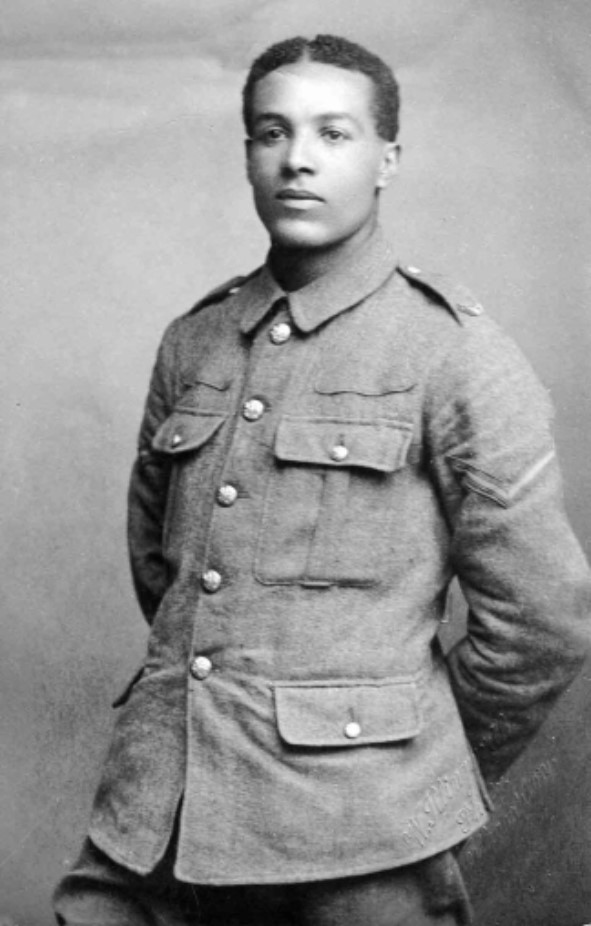 The move of Walter Tull to Rangers never took place because of the outbreak of the First World War in 1914 resulting in his decision to join the army as a member of the Football Battalion and within a relatively short period of time he was promoted to the rank of sergeant indicating his leadership potential.
The move of Walter Tull to Rangers never took place because of the outbreak of the First World War in 1914 resulting in his decision to join the army as a member of the Football Battalion and within a relatively short period of time he was promoted to the rank of sergeant indicating his leadership potential.
Walter Tull was not posted to the Western Front until November 1915 and once here he found the situation in the trenches challenging and suffered from shellshock particularly after being involved at the Battle of the Somme which started in July and was sent home in order to recover from his condition. Within a relatively short period of time Tull returned to the Western Front, but he was sent home again suffering from trench fever although in spite of this he continued to impress his military superiors who recommended that he should be considered for further promotion as an officer.
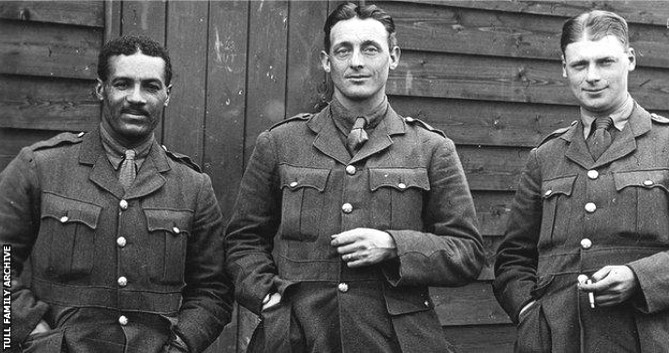
Career as an Army Officer and Death in 1918
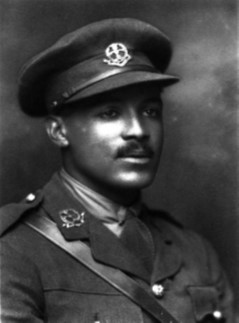 Walter Tull was sent to the officer training school at Gailes in Scotland and in spite of military regulations which stated that “any negro or person of colour” could not be an officer Tull received his first commission as a Lieutenant in May 1917 and in doing so became the first Black combat officer in the British Army.
Walter Tull was sent to the officer training school at Gailes in Scotland and in spite of military regulations which stated that “any negro or person of colour” could not be an officer Tull received his first commission as a Lieutenant in May 1917 and in doing so became the first Black combat officer in the British Army.
Tull was sent to the Italian Front and led his soldiers at the Battle of Piave in January 1918 and was remarkably successful in his first raid as his battalion suffered no casualties in spite of the fact that they were under intense fire by the enemy with this being viewed as impressive by his superiors. Tull remained in Italy until 1918 when he was transferred to France so as to take part in the attempt to break the German lines on the Western Front and on 25th March he was ordered to lead an attack on their position at Favreuil, but he was shot by German fire in the head in No Man’s Land and died instantly.
During his relatively short period in command Tull had become a popular officer with his men and following his death several of them attempted to rescue his body from No Man’s Land and bring it back to the British trenches but had to give up because of heavy enemy fire from German machine gun positions.
It is now known that Tull was recommended for the Military Cross because of his bravery in battle, although this was never received by his family with the Ministry of Defence claiming that there is no record of such a recommendation existing, although it is now believed that the issue of race played a part.
Mr Goodall, Head of History
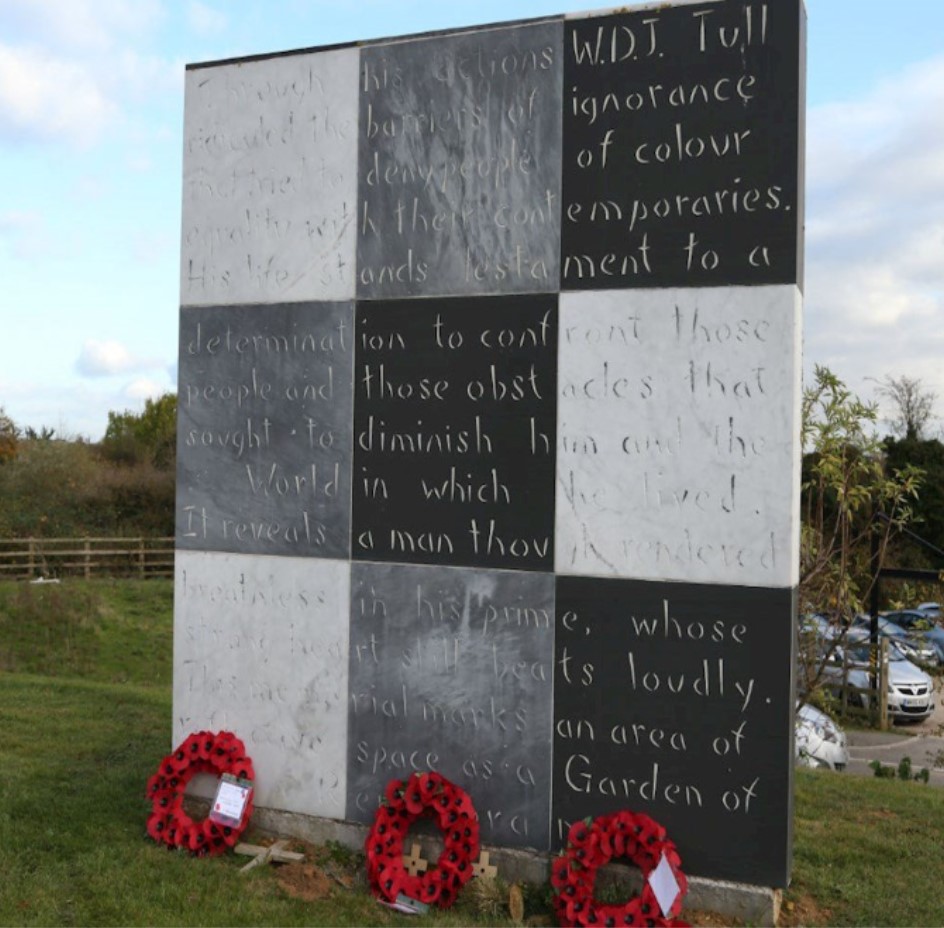

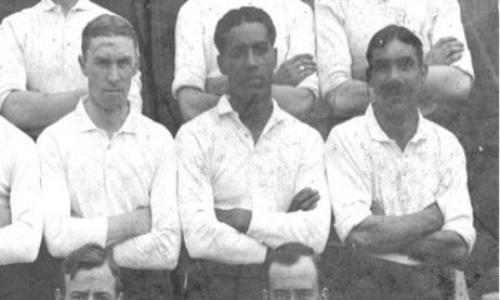
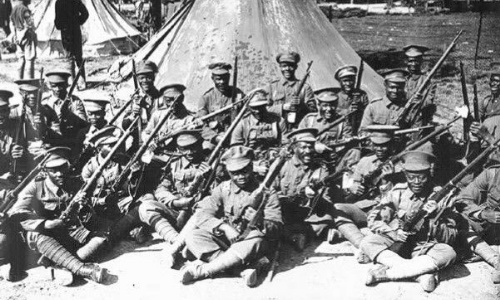
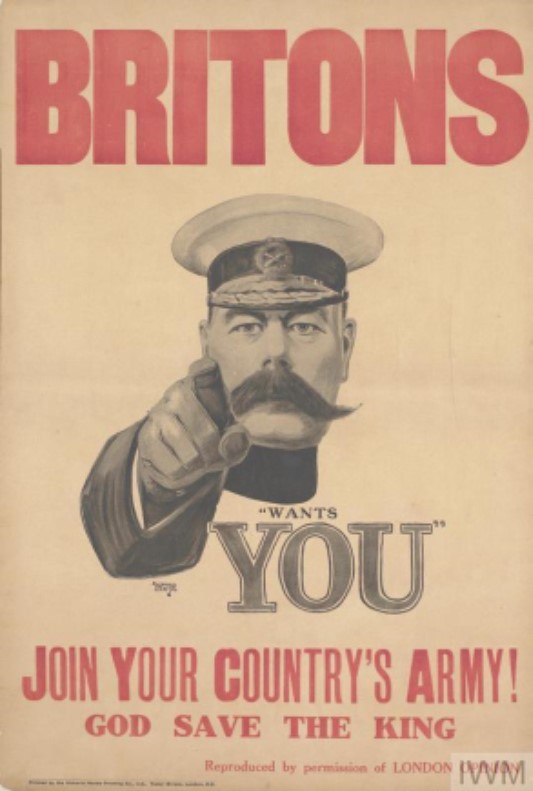
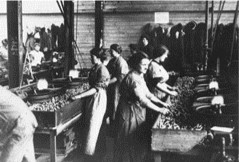 This year, I’m also choosing to highlight those who aren’t always celebrated on Remembrance Day. Soldiers on the battlefield faced great struggles; however, women left on the Homefront also faced problems and overcame them with admirable courage. These issues included food shortages, bomb strikes and a crippled economy. Fear and hardship were rife at home, yet those who suffered are often forgotten on Remembrance Day. Girl Guides picked up shovels and grew food for the whole nation; children knitted socks for soldiers;
This year, I’m also choosing to highlight those who aren’t always celebrated on Remembrance Day. Soldiers on the battlefield faced great struggles; however, women left on the Homefront also faced problems and overcame them with admirable courage. These issues included food shortages, bomb strikes and a crippled economy. Fear and hardship were rife at home, yet those who suffered are often forgotten on Remembrance Day. Girl Guides picked up shovels and grew food for the whole nation; children knitted socks for soldiers;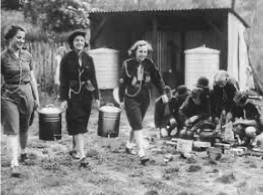 women became farmers, train drivers and factory workers. The bravery they displayed in face of great upheaval should not be forgotten, but celebrated alongside the actions of brave soldiers for their contribution in winning the war.
women became farmers, train drivers and factory workers. The bravery they displayed in face of great upheaval should not be forgotten, but celebrated alongside the actions of brave soldiers for their contribution in winning the war.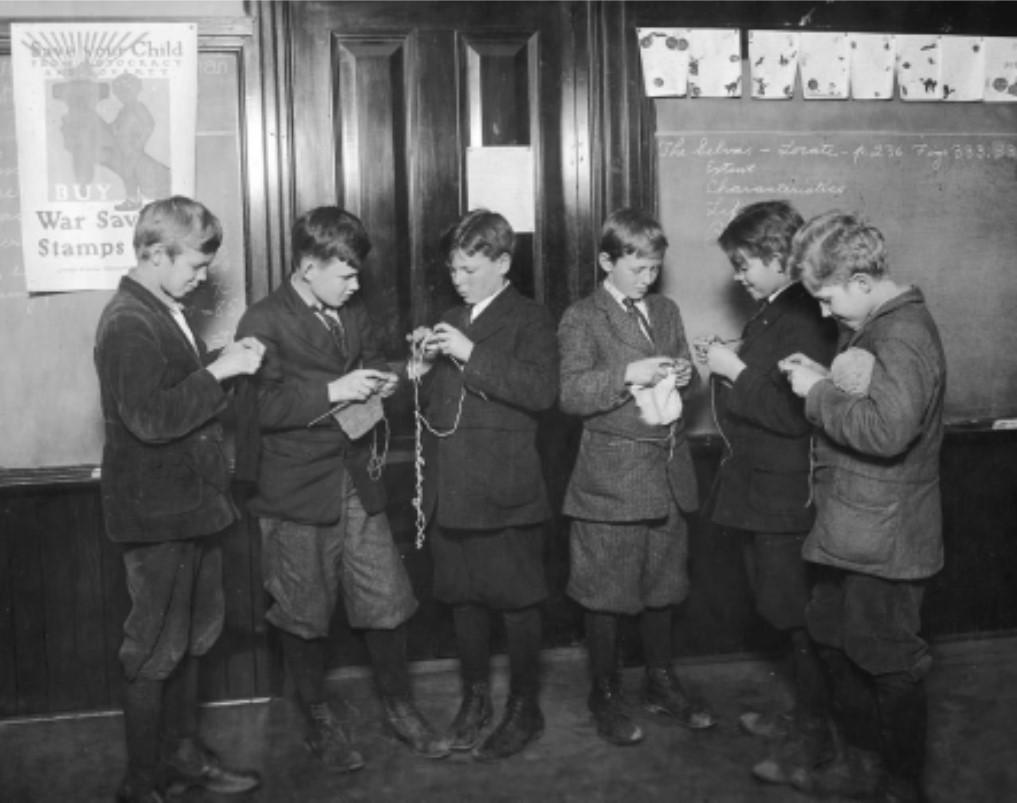 their truth, and they remain forgotten. By choosing to highlight their bravery this Remembrance Day, we do not diminish the actions of British soldiers but instead embrace the strength and courage shown by all those who contributed in World War One, regardless of race and nationality.
their truth, and they remain forgotten. By choosing to highlight their bravery this Remembrance Day, we do not diminish the actions of British soldiers but instead embrace the strength and courage shown by all those who contributed in World War One, regardless of race and nationality.